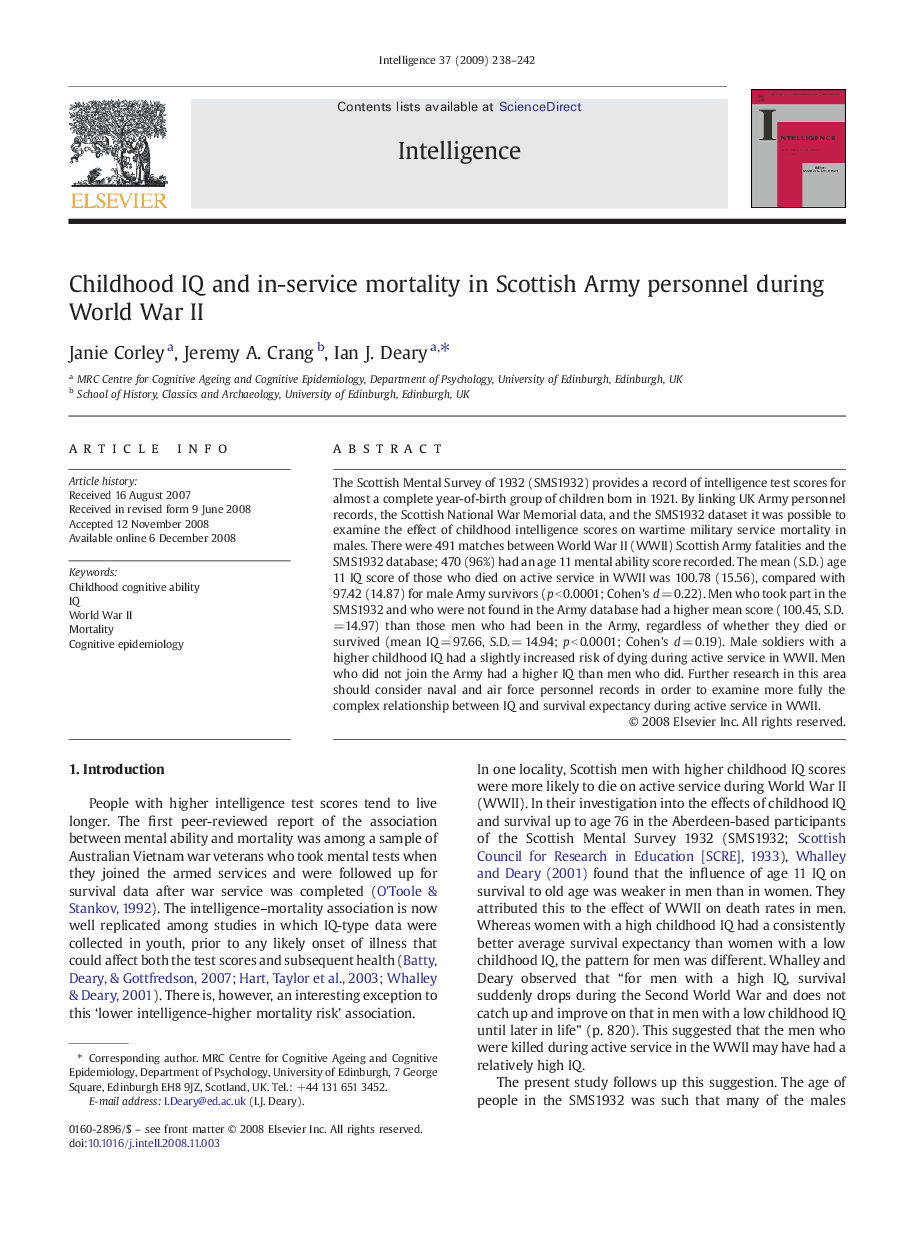| کد مقاله | کد نشریه | سال انتشار | مقاله انگلیسی | نسخه تمام متن |
|---|---|---|---|---|
| 929258 | 922550 | 2009 | 5 صفحه PDF | دانلود رایگان |

The Scottish Mental Survey of 1932 (SMS1932) provides a record of intelligence test scores for almost a complete year-of-birth group of children born in 1921. By linking UK Army personnel records, the Scottish National War Memorial data, and the SMS1932 dataset it was possible to examine the effect of childhood intelligence scores on wartime military service mortality in males. There were 491 matches between World War II (WWII) Scottish Army fatalities and the SMS1932 database; 470 (96%) had an age 11 mental ability score recorded. The mean (S.D.) age 11 IQ score of those who died on active service in WWII was 100.78 (15.56), compared with 97.42 (14.87) for male Army survivors (p < 0.0001; Cohen's d = 0.22). Men who took part in the SMS1932 and who were not found in the Army database had a higher mean score (100.45, S.D. =14.97) than those men who had been in the Army, regardless of whether they died or survived (mean IQ = 97.66, S.D. = 14.94; p < 0.0001; Cohen's d = 0.19). Male soldiers with a higher childhood IQ had a slightly increased risk of dying during active service in WWII. Men who did not join the Army had a higher IQ than men who did. Further research in this area should consider naval and air force personnel records in order to examine more fully the complex relationship between IQ and survival expectancy during active service in WWII.
Journal: Intelligence - Volume 37, Issue 3, May–June 2009, Pages 238–242